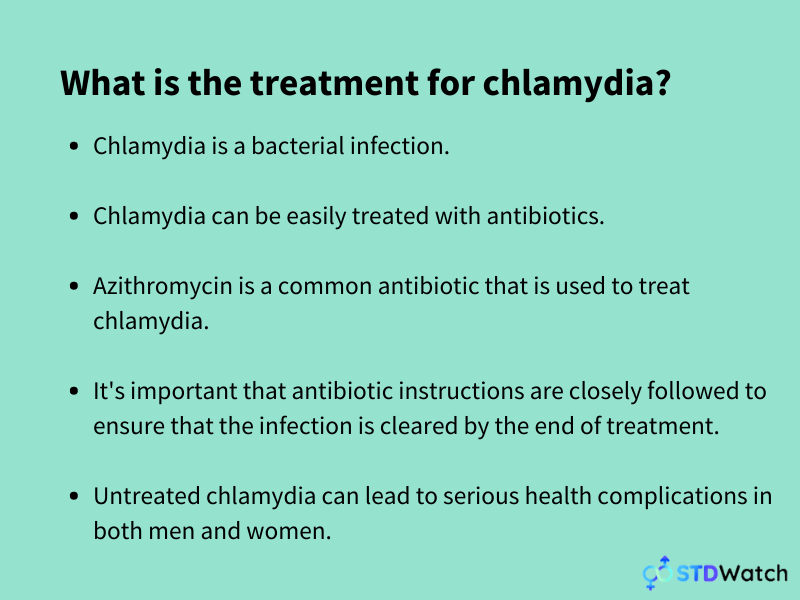Chlamydia medonline
How Long Do You Have To Take Chlamydia Antibiotics?
Treating Chlamydia with Antibiotics
Hey there, my beautiful people! Today, we are diving into the topic of chlamydia treatment. We want to make sure you have all the information you need to take care of your health. So, let's talk about how long you'll need to take antibiotics to kick chlamydia to the curb.
Chlamydia is a common sexually transmitted infection (STI) that can affect anyone, regardless of their background. It's important to prioritize our sexual health and seek treatment if needed.

Your Journey to Recovery
When it comes to treating chlamydia, antibiotics are the go-to solution. These powerful medications work to eliminate the bacteria causing the infection. The most commonly prescribed antibiotics for chlamydia treatment are azithromycin and doxycycline.
So, how long will you have to take these antibiotics? Well, here's the deal:
The standard treatment regimen for chlamydia consists of a single dose of azithromycin or a one-week course of doxycycline. Both options are highly effective. The choice between the two will depend on your specific circumstances and your healthcare provider's recommendation.
If you go with the single-dose azithromycin treatment, you'll have to take it all at once. It may seem like a lot to handle, but trust me, it's worth it for your health. Taking the full dose is crucial to ensure the infection is completely eradicated from your body.
Remember: It's important to take the complete course of antibiotics as prescribed, even if you start feeling better before you finish. Finishing the entire treatment is essential to prevent any lingering bacteria from causing reinfection or complications.

The Road to Recovery Starts Here
During your chlamydia treatment, it's also crucial to avoid any sexual activity, including oral, vaginal, or anal sex until you complete the full course of antibiotics. This will prevent transmitting the infection to your partner(s) and reduce the risk of reinfection.
Additionally, make sure your sexual partner(s) get tested and seek treatment if necessary. This will help prevent the spread of chlamydia and protect everyone's well-being. Remember, communicating openly about STIs is crucial for our community's sexual health.
While you're on antibiotics, you might experience some mild side effects like nausea, vomiting, or diarrhea. Don't worry; these usually subside within a short time. If you have any concerns or if side effects persist, make sure to reach out to your healthcare provider for guidance.
My beautiful people, taking care of our sexual health is an essential part of self-care. Let's prioritize regular testing, practice safe sex, and empower ourselves with knowledge. Remember, STIs don't discriminate; they can affect anyone, regardless of their race, ethnicity, or background. We are in this together!
Stay safe, stay healthy, and keep spreading that love and positivity!